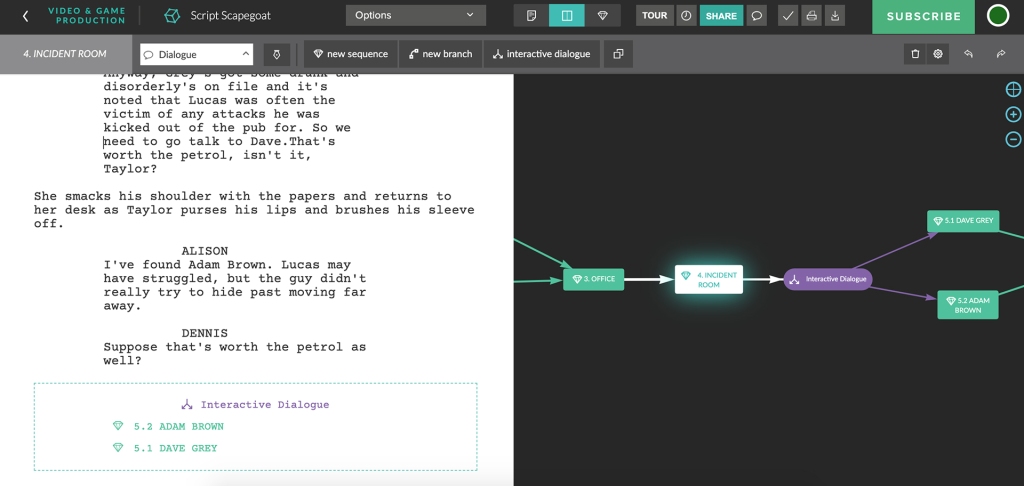Here at the Interactive Filmmaking Lab, we have started the New Year with new publications! Hot off the press:
Clarke, A. and Zioga, P. (2022) Scriptwriting for Interactive Crime Films: the Case of Scapegoat. Interactive Film And Media Conference 2021: New Narratives, Racialization, Global Crises, And Social Engagement, Online. Interactive Film and Media Journal, 2(1): 106-121. doi: 10.32920/ifmj.v2i1.1524.
In recent years, the increasing number of interactive films being released, has highlighted the need for further development of methods and criteria that can guide the earlier stages of development, such as the scriptwriting process. Following the framework of interactive storytelling as a spectrum, it is acknowledged that writing a script for an interactive narrative that involves branching path options, or multiple endings, is becoming more common and presents its own challenges. […]
The article is published as part of the Proceedings of the ‘III Interactive Film and Media Conference (#IFM 2021)’ that took place in August 2021. You can read here: the full article and the editorial.

Also, in press:
Zioga, P. and Vélez-Serna, M.A. (2021 In Press) ‘Interaction Design for Audiences: A Proposition for Building Resilience and Recovery for COVID-safe Independent Cinemas’. In: Proceedings of Audiences Beyond the Multiplex: Understanding the Value of a Diverse Film Culture. Studies in the Digital Humanities. Sheffield: The Digital Humanities Institute.
[…] interaction design and technologies can help independent cinemas to engage and galvanise new audiences to patronise COVID-safe venues. From low-end online platforms to high-end immersive experiences, new technologies are transforming connectivity across society, and have the potential to support access for D/deaf, neurodivergent, and disabled audiences, but adoption by exhibitors is so far limited. We outline the research needs and priorities in this field. These include identifying facilitators and obstacles to industry adoption of interactive forms, and mapping experiences and attitudes across the sector. Together with directions for immediate practical solutions, it is crucial to gather critical data for future research use, in order to pave the way for long-term solutions and design innovation, so that the sector can build resilience, recover and reach underserved audiences.
The article will be published as part of the Proceedings of the Conference ‘Audiences beyond the multiplex: understanding the value of a diverse film culture’ that took place in March 2021. You can read the full article here.
